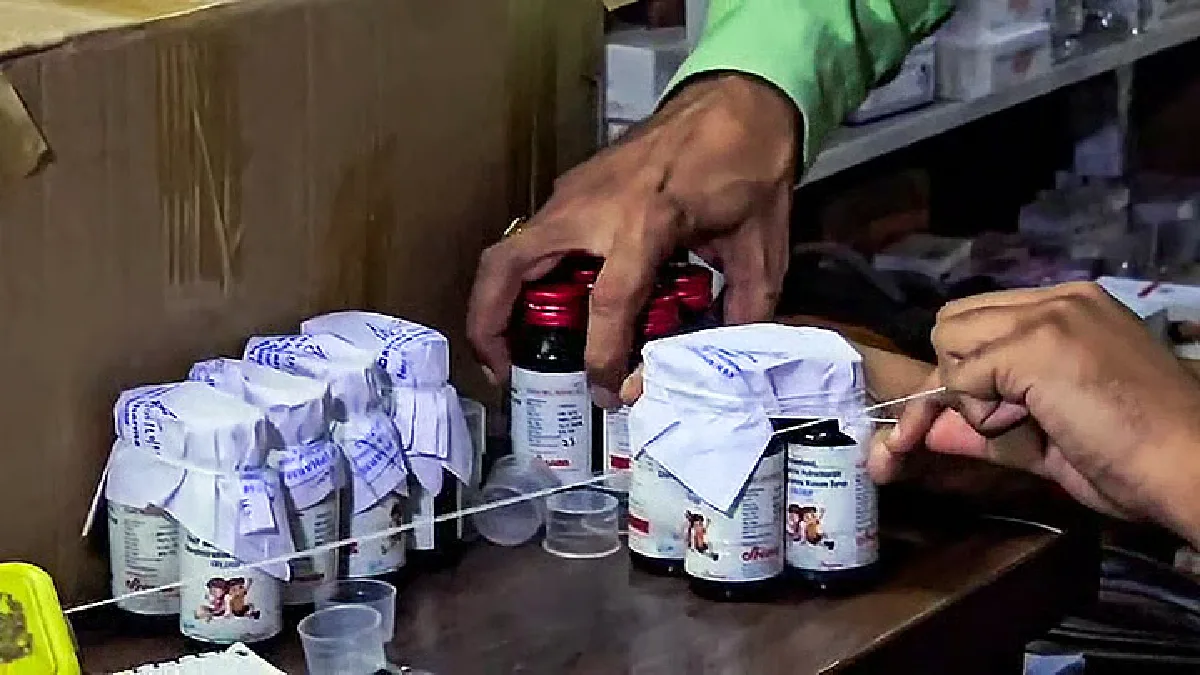CHHINDWARA, Madhya Pradesh — The number of child fatalities linked to a contaminated cough syrup in Madhya Pradesh’s Chhindwara district has climbed to 17, as three more young victims lost their lives over the past two days, according to a senior government official.
Chhindwara Additional Collector Dhirendra Singh confirmed to The Hindu that among seven children from the district transferred to hospitals in neighboring Maharashtra’s Nagpur, one passed away late on Monday, October 6, followed by two others on Tuesday. Currently, four children from Chhindwara and five from adjacent Betul district remain hospitalized in Nagpur, receiving care at facilities including the Government Medical College, AIIMS, and several private institutions.
Two of the latest deceased were girls, originating from the Tamia, Junnardeo, and Parasia regions of Chhindwara. All had ingested the same faulty medication and developed acute kidney failure, officials noted. The children initially presented with fever and cold symptoms, leading to prescriptions of the ‘Coldrif’ syrup, which soon triggered severe vomiting and urinary complications. The initial death occurred on September 2.
Produced by Sresan Pharmaceuticals in Kancheepuram, Tamil Nadu, the syrup was later revealed by drug inspectors from Tamil Nadu and Madhya Pradesh to contain more than 45% diethylene glycol—a toxic substance notorious for causing grave health issues. This discovery prompted immediate bans on its distribution in both states earlier this month.
Compounding the crisis, Madhya Pradesh Police detained government pediatrician Praveen Soni in Parasia, Chhindwara, for recommending the syrup to numerous affected children. Authorities have also charged the manufacturer and established a special investigation team (SIT) to examine the incident thoroughly.
In a show of support, Chief Minister Mohan Yadav announced that the state would cover all medical expenses for the nine children still receiving treatment in Nagpur. “The Collectors of Chhindwara and Betul are in regular touch with the families, offering full support,” a government release stated. “Per the Chief Minister’s orders, the entire treatment cost for these nine children will be provided directly to the families.” Additionally, the Chhindwara Collector has assembled three dedicated teams to aid the ongoing care in Nagpur.
The arrest has ignited backlash from the medical community. Dozens of physicians in Parasia held a protest and initiated an indefinite strike, led by the local Indian Medical Association (IMA) branch, calling for Dr. Soni’s prompt release. A group of doctors presented a memorandum to Additional Collector Singh, but received no firm commitments. “The police acted on evidence; if they disagree, the courts are available,” Singh remarked.
Dr. Ankur Batra, a general surgeon and IMA Parasia unit secretary, told The Hindu the allegations against Dr. Soni were baseless. “He’s a respected senior physician, not a wrongdoer. The focus should shift to the drug company and the approvers, not the prescriber,” Batra argued. “We insist on his immediate freeing while the probe proceeds. This strike persists until then.” The demonstration drew participants from dental and pharmaceutical groups, with a quiet march planned for Wednesday, October 8.
As investigations deepen, the community grapples with grief and demands for accountability, underscoring persistent vulnerabilities in India’s pharmaceutical oversight.
